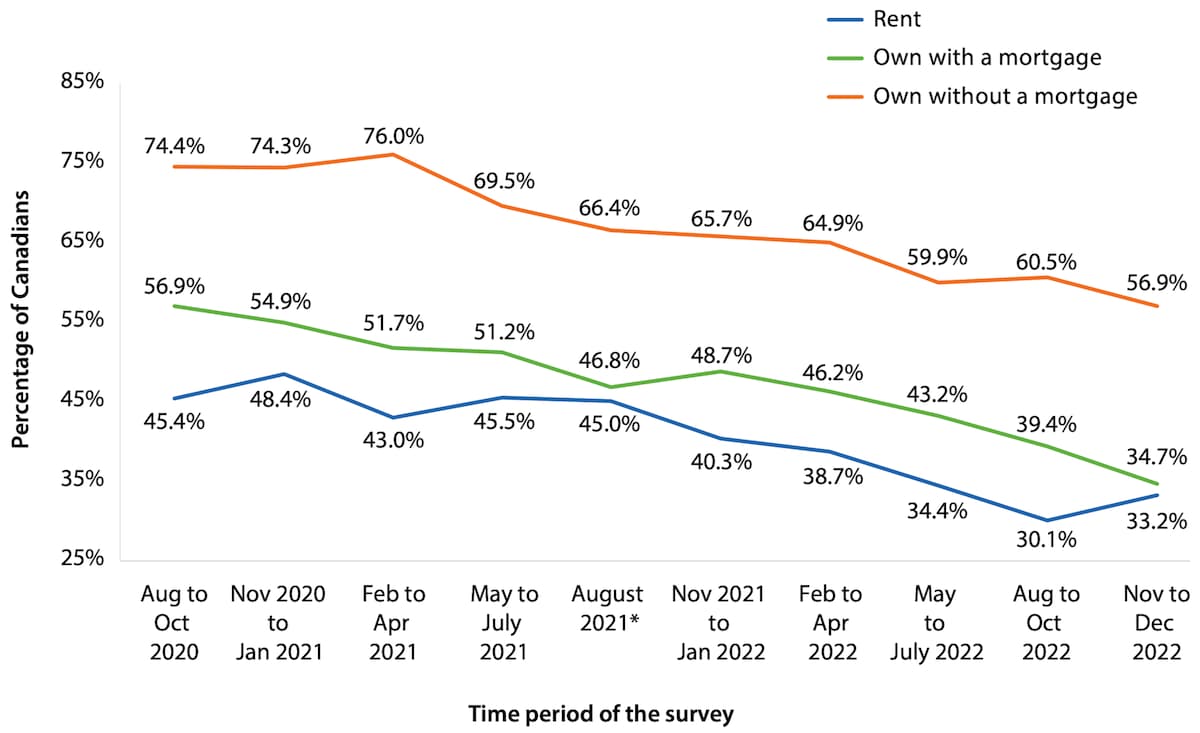
Canada’s Real Estate Problem Becomes an Everything Problem
Canada’s Housing Crisis Is Sending Shockwaves Through Business and Beyond
In the heart of Toronto’s financial district, a top-tier consulting firm recently watched a star candidate slip through its fingers. The reason wasn’t salary or job title, but the price of a one-bedroom apartment: $2,300 a month, according to Rentals.ca’s November average. “Housing is killing our competitive edge,” a senior partner at the firm lamented to the Canadian Press last month. “We can pay well, but we can’t magically make rent less than 50% of a new hire’s take-home pay.”
This is the new Canadian reality: sky-high residential costs aren’t just making it tough for families to find homes; they’re also jacking up the cost of commercial real estate and pushing employers into a talent war they’re ill-equipped to win. In 2024, Vancouver’s downtown office rents reached a record high of $42.33 per square foot, per CBRE data, mirroring the city’s chronically inflated home prices. The trickle-down effect is stark. As landlords recoup their surging property tax bills, retailers in hotspots like Vancouver’s Kitsilano find themselves paying 20% more in rent than five years ago, forcing some to close shop or raise prices for customers already stretched thin.
Meanwhile, employees—existing and prospective—know the score. A survey by the Real Estate Foundation of BC found that over 74% of young professionals see housing costs as a “significant barrier” to living and working in Vancouver’s urban core. In Toronto, Statistics Canada data show that nearly one in three workers under 40 has considered moving out of the city due to housing expenses. These are not isolated anecdotes. They add up to a national headache for companies trying to recruit the best talent.
Ottawa-based Shopify is a prime example. While the e-commerce giant once lured hotshot developers from Montreal, Calgary, and even the U.S., housing sticker shock in Ottawa’s core—where the average condo price hit $465,000 in mid-2024—has prompted recruits to think twice. “We’re seeing candidates come in, do the math on living costs, and then tell us: ‘Thanks, but I can do better elsewhere,’” says a hiring manager who requested anonymity. The ripple effect? Employers are forced to raise wages or offer costly perks like housing stipends and relocation bonuses, which chip away at profit margins and could eventually reflect in higher product prices.
Foreign talent, a key engine of Canada’s tech and financial sectors, is also getting wary. “We used to brag that Toronto and Vancouver were global cities with more affordable housing than London or San Francisco,” says RBC senior economist Robert Hogue. “That’s no longer the case. The average detached home in Toronto now hovers around $1.4 million. Renters in Vancouver easily pay $3,000 for a two-bedroom. We’re losing the affordability narrative.” According to RBC’s 2024 Housing Affordability Report, Toronto and Vancouver rank among the most unaffordable cities in North America, with housing costs claiming over 60% of median household income.
This housing crunch doesn’t just burden would-be homeowners—it’s fundamentally re-shaping where business clusters. Calgary, with its cheaper rents and rising tech scene, is quietly poaching talent that would have once flocked to Toronto. Halifax’s commercial real estate transactions are up 18% year-over-year, as some companies consider smaller cities to sidestep the wage-housing arms race. In a 2023 KPMG survey, 27% of mid-sized firms said they plan to open satellite offices in secondary markets to “avoid prohibitive real estate and wage inflation” in Canada’s biggest cities.
But cheaper markets come with their own drawbacks: weaker networks, fewer cultural amenities, and smaller talent pools. Employers, then, are stuck choosing between expensive cities where workers balk at housing costs, or cheaper locales that lack the same economic dynamism. It’s a lose-lose proposition that drains productivity and innovation.
On top of that, retail and service businesses must pass on their skyrocketing lease costs to consumers. After all, when a downtown café sees its rent climb 15% in a single renewal cycle—mirroring the 17% jump in average condo rent over the past two years—it has few options besides charging $6 for a latte that cost $4.50 not long ago. This, in turn, dampens consumer confidence and can erode the city’s appeal for both residents and tourists. Retail analysts at Colliers note that suburban malls outside overheated housing markets have seen a slight resurgence in occupancy, as brands seek refuge from the urban core’s real estate roulette.
Politicians increasingly acknowledge that ignoring the housing crisis isn’t just a social mistake—it’s an economic blunder. Federal Housing Minister Sean Fraser stated in October: “If we don’t address affordability, we risk undermining our economic competitiveness. Businesses can’t thrive if employees can’t afford to live within a reasonable commute.” Plans to boost housing supply, relax zoning, or offer incentives for affordable units are on the table, but these solutions will take years, not months, to bear fruit.
In the meantime, Canada is stuck with a self-reinforcing cycle. High residential costs push up commercial rents, intensifying the cost of doing business. That cost, in turn, pressures companies to increase wages and prices, which only further entrenches unaffordability. Housing, once just a domestic concern about homeownership and renting, now touches every aspect of the economy—from what we pay for groceries to where companies set up shop, to who can afford to take the job of their dreams.
Canada’s housing crisis has evolved into an “everything problem”—it sets the stage for battles over where people can afford to live, who can afford to work there, and how businesses can survive the resulting financial squeeze. Until the country addresses the root causes—namely, insufficient supply, speculative pricing, and uneven economic geography—the crisis will continue to warp the business landscape and challenge Canada’s future prosperity.